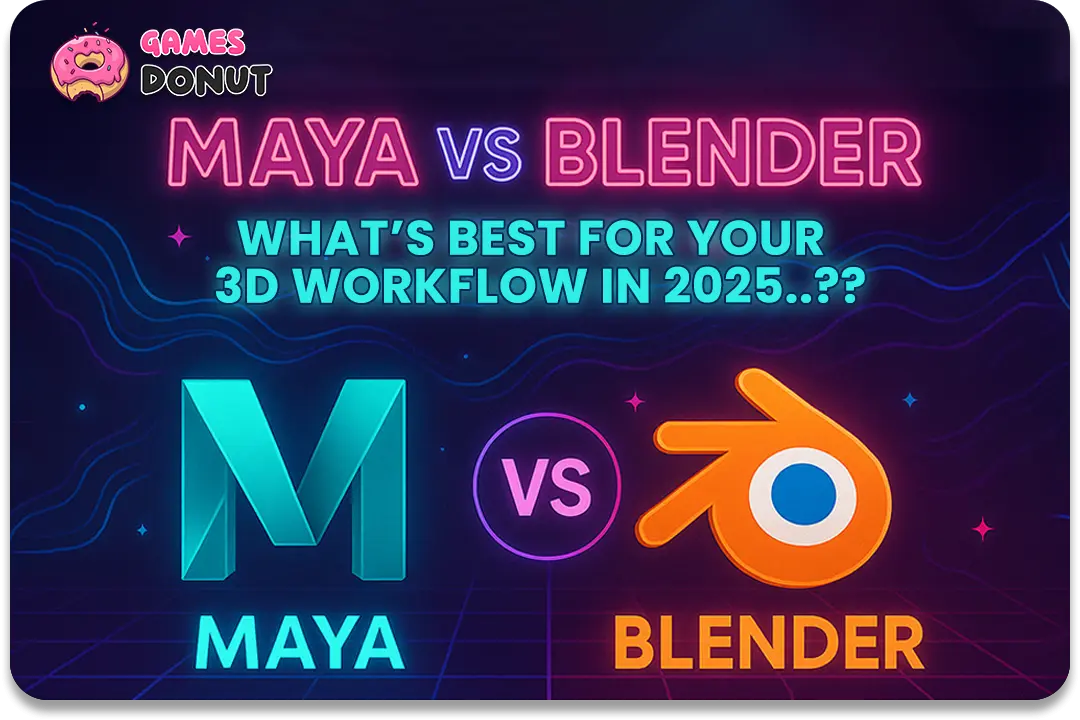Introduction
The video game industry has experienced unprecedented growth over the past decade, with revenues surpassing those of the music and film industries combined. The COVID-19 pandemic accelerated this expansion, as millions of people turned to video games for entertainment, socialization, and even stress relief. As of 2024, the number of gamers worldwide exceeds 2.6 billion, and this figure is projected to rise significantly in the coming years.
A major force driving this evolution is Generative Artificial Intelligence (AI)—a cutting-edge technology that is transforming how games are created, played, and experienced. Generative AI refers to machine learning models capable of autonomously generating content, including landscapes, characters, dialogue, music, and even entire game narratives. This technology has the potential to redefine game development by enhancing creativity, efficiency, and personalization while reducing costs and development time. As the gaming industry continues to evolve, the integration of generative AI will pave the way for more immersive, adaptive, and intelligent gaming experiences.
1. Procedural Content Generation: Crafting Expansive and Dynamic Worlds
One of the most significant applications of generative AI in game development is Procedural Content Generation (PCG). This approach allows developers to create massive and dynamic game worlds algorithmically rather than manually designing each aspect. This ensures that each player's experience is unique and prevents environments from becoming repetitive.
Key Advantages of AI-Powered Procedural Content Generation:
- Infinite and Diverse Worlds: AI can generate vast, explorable landscapes, cities, and dungeons with unique structures, biomes, and ecosystems. This technique is used in games like No Man’s Sky, where AI creates billions of planets, each with distinct topography, weather, and lifeforms.
- Adaptive and Evolving Environments: Unlike static game worlds, AI-generated environments can change in real-time based on player interactions. For instance, a game might generate new terrain based on a player's past exploration habits or dynamically alter the game world based on story progression.
- Time and Cost Efficiency: Creating large open-world games manually requires significant resources and workforce. Generative AI speeds up development by automating world-building, allowing developers to focus on storytelling and gameplay mechanics instead of manual level design.
- Enhanced Replayability: Since AI-generated content changes with each playthrough, players never experience the same world twice, boosting long-term engagement and player retention.
By leveraging generative AI, developers can push the boundaries of open-world gaming, creating expansive and ever-evolving virtual landscapes.
2. Intelligent NPCs: Enhancing Interactivity and Realism
Traditionally, Non-Player Characters (NPCs) have relied on pre-scripted behavior patterns, making interactions predictable and often immersion-breaking. However, generative AI is transforming NPCs into intelligent, adaptive entities capable of more human-like behavior and dynamic decision-making.
AI-Driven NPC Innovations:
- Adaptive AI Behaviors: Instead of following a fixed set of responses, AI-powered NPCs analyze player behavior and adjust accordingly. For example, in role-playing games (RPGs), NPCs can react dynamically to a player's choices, developing friendships, rivalries, or grudges based on prior interactions.
- Realistic Conversational AI: Advances in Natural Language Processing (NLP) allow NPCs to engage in open-ended conversations rather than sticking to scripted dialogue trees. Games like The Elder Scrolls VI could utilize AI chat models to generate unique, context-aware responses, making the world feel more alive.
- Emotion and Personality Simulation: AI can simulate complex emotions and decision-making, enabling NPCs to develop unique personalities. Imagine a game where each NPC has its own evolving desires, routines, and interpersonal relationships, leading to more immersive storytelling.
- AI-Driven Quests and Missions: Instead of repeating pre-written quests, AI can generate personalized missions based on a player’s actions, ensuring fresh content every time they play.
As AI continues to evolve, NPCs will become more lifelike, making video game worlds richer, deeper, and more interactive.
3. Personalized Gaming Experiences: Tailoring Content to Players
Generative AI is making it possible to customize game content in real-time to suit the preferences and playstyles of individual players. This level of personalization enhances player immersion and engagement by ensuring that the game adapts to their unique choices and habits.
How AI Personalizes Gaming:
- Custom Storytelling: AI can modify narratives based on player decisions, ensuring that each player's journey is truly unique. In narrative-driven games, AI can craft storylines that evolve dynamically based on choices, morality, and player relationships.
- Dynamic Game Difficulty: Instead of setting a static difficulty level, AI can analyze player skill levels and adjust enemy behaviors, puzzles, or challenges in real-time. This ensures that the game remains engaging without becoming frustrating or too easy.
- AI-Generated Avatars and Dialogue: AI can generate personalized in-game avatars based on player preferences, as well as create unique voice lines for characters based on real-time interactions.
- Player-Specific Music and Soundscapes: Generative AI can compose adaptive soundtracks that change based on gameplay intensity, emotions, and scenarios.
This level of personalization allows each player to experience a game in a way that feels tailor-made, increasing immersion and long-term retention.
4. AI-Driven Game Development: Reducing Costs and Enhancing Efficiency
Generative AI is not just improving gameplay—it is revolutionizing game development itself by automating various aspects of the creation process.
Key Benefits of AI in Game Development:
- Automated Asset Creation: AI can generate 3D models, textures, and animations, reducing the need for manual labor in designing characters, weapons, and environments.
- Efficient Bug Testing and Quality Assurance: AI-powered testing tools can simulate thousands of gameplay scenarios in minutes, detecting bugs, balancing issues, and inconsistencies faster than traditional methods.
- Game Balancing and Optimization: AI can analyze player data to fine-tune game mechanics, ensuring that characters, weapons, and abilities remain balanced across different playstyles.
- Voice and Dialogue Generation: AI-powered text-to-speech technology can generate voiceovers for characters, eliminating the need for extensive voice acting sessions.
By integrating AI into the development pipeline, game studios can significantly cut costs and production times while maintaining high-quality output.
5. Challenges and Ethical Considerations
Despite its advantages, the integration of AI in gaming comes with several ethical and practical challenges that need to be addressed.
Potential Concerns:
- Job Displacement: Automation in game development raises concerns about the future of jobs in the industry, particularly for artists, designers, and writers.
- Bias in AI-Generated Content: AI models trained on biased datasets can unintentionally perpetuate stereotypes, requiring careful oversight in their implementation.
- Preservation of Human Creativity: While AI enhances efficiency, ensuring that human creativity remains at the forefront of game design is essential to maintain artistic integrity.
- Data Privacy: AI-driven personalization often requires extensive data collection, raising concerns about player privacy and security.
Developers must strike a balance between leveraging AI’s capabilities and maintaining ethical, responsible game development practices.
Conclusion
Generative AI is set to redefine the future of video games by making them more intelligent, dynamic, and engaging. From procedurally generated worlds and adaptive NPCs to personalized storytelling and streamlined development processes, AI is shaping the next era of gaming. However, as this technology advances, the industry must address ethical challenges to ensure that AI is used responsibly. With the right approach, generative AI has the potential to unlock limitless creative possibilities, revolutionizing the gaming experience for players worldwide.




